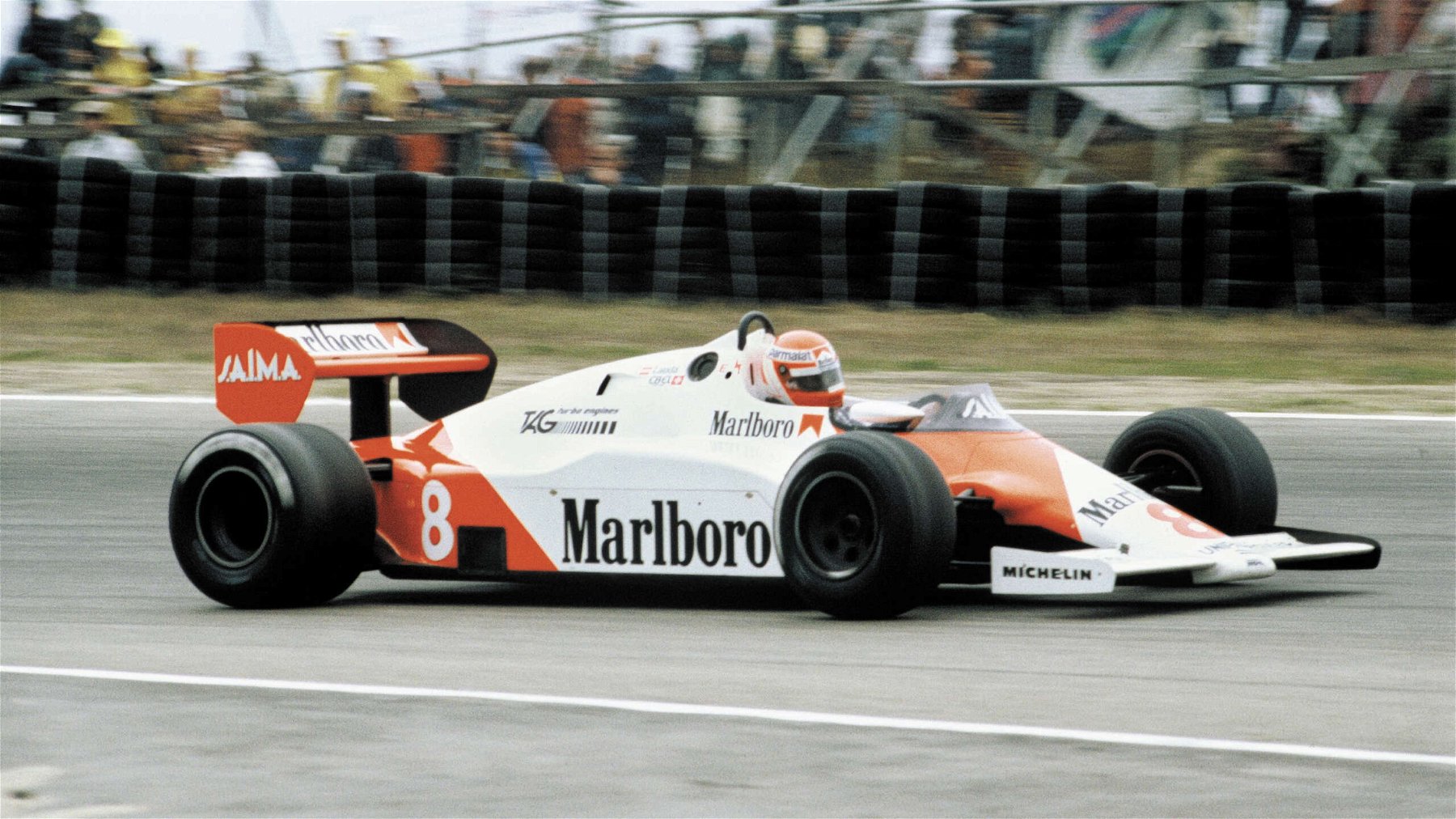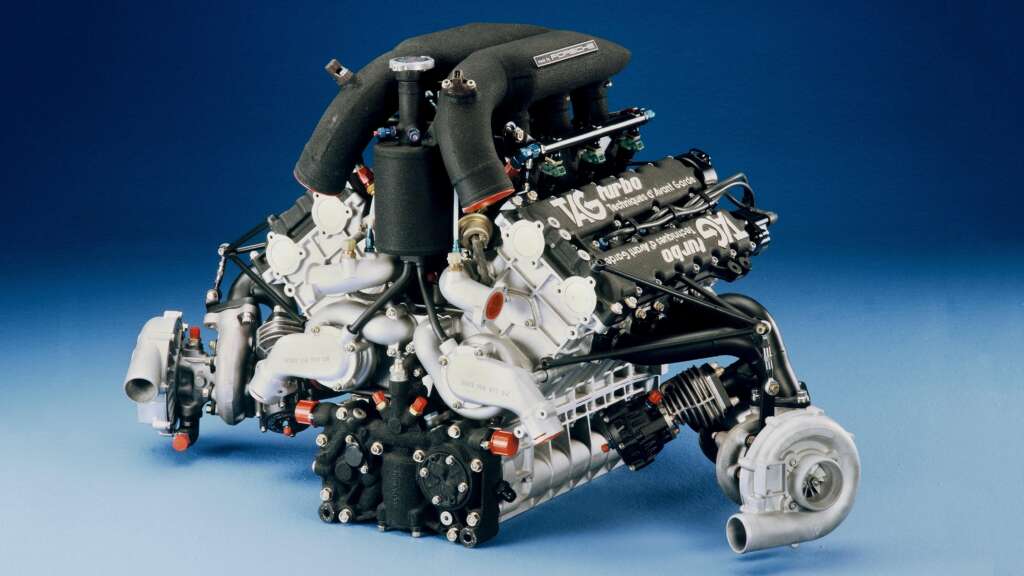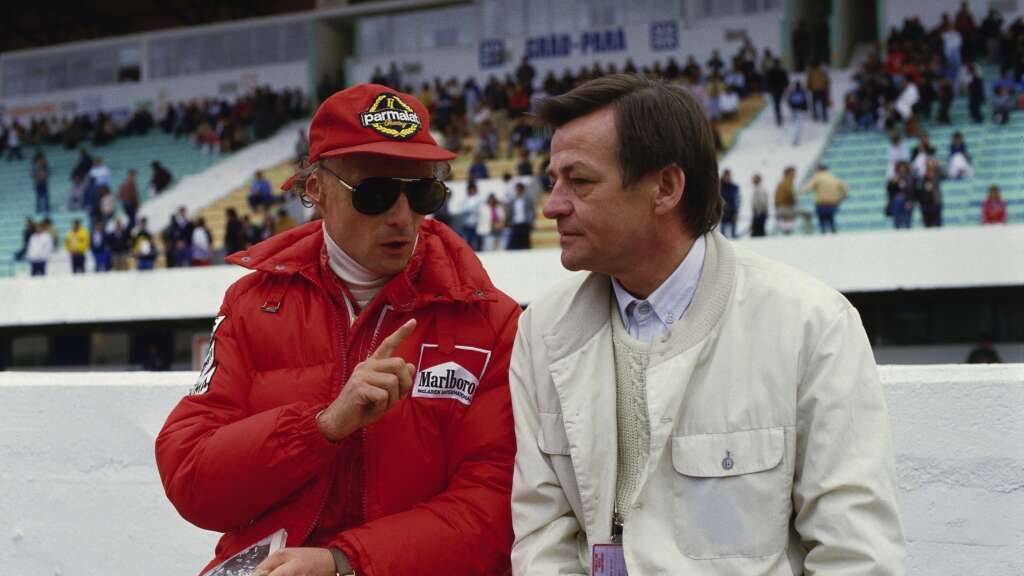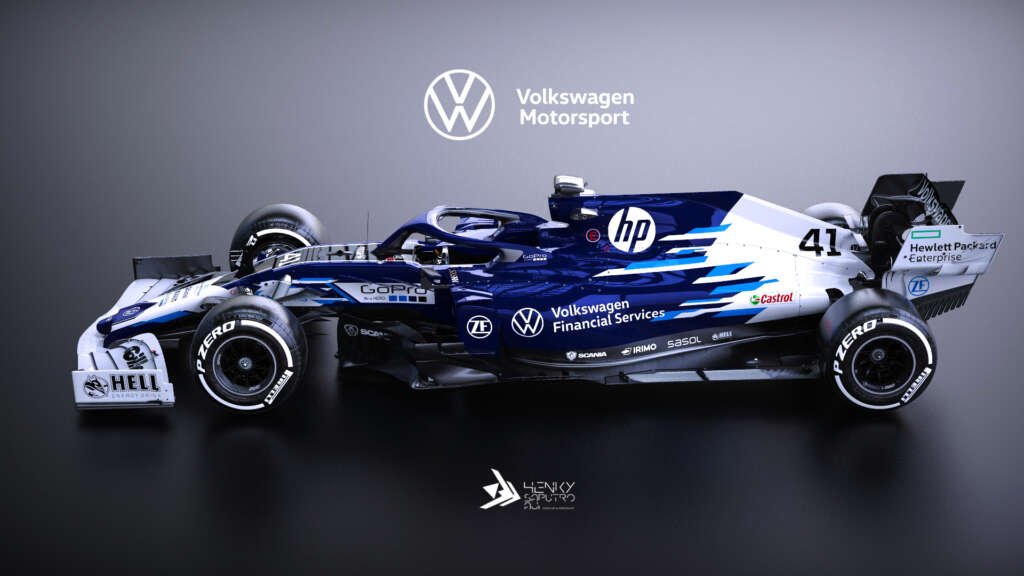
Porsche and Formula 1: two names that hardly anyone associates with each other today. That could soon change. After all, there has been speculation for some time now about Porsche’s parent company Volkswagen entering the top class of motor racing. From 2026, Formula 1 will compete with new, more sustainable regulations. 1.6-liter V6 turbocharged engines will continue to be used. Hang on a minute. V6 Turbo and Porsche in F1? There was something…

In Estoril, Portugal, on October 21, 1984, Niki Lauda crossed the finish line in his McLaren-TAG Porsche in second place behind Alain Prost. This gave the team its third one-two victory of the 1984 F1 season. For Niki Lauda on the other hand, it meant his third and last Formula 1 driver’s title. With Prost, the team was able to defend that in the following two years. This successful period was based on the TAG Turbo V6, which Porsche developed in close cooperation with McLaren. The marriage between Porsche and McLaren ended in 1987. After four years, three world championship titles and a total of 25 victories, Porsche’s Formula 1 involvement came to an end.
Porsche’s Formula 1 ambitions are not new. As early as 1962, a Porsche 804 made its debut in motorsport’s premier class. At the 1962 French Grand Prix, Dan Gurney claimed victory for the then-underdog. Until today, it remains Porsche’s single race win as a constructor. In the following engagements with McLaren and Arrows, Porsche appeared only as an engine supplier. Incidentally, all of Porsche’s Formula 1 engines to date have been penned by Hans Mezger.


A brief, unfortunately unsuccessful interlude with Footwork-Arrows in 1991 is still the last involvement of the Stuttgart-based company in Formula 1. The hastily developed Porsche 3512 proved to be too heavy, too weak and too unreliable. Porsche was already working on a new V10 engine, but before the end of the season, after just six races, the two went their separate ways. Without a single point, mind you. Rumors of a return in recent years did not prove true.
Now, however, a new era is about to dawn in Formula 1. Although the FIA has not yet presented a firm draft of the new ruleset, it has at least presented an initial concept for the power units from 2026. While 1.6-liter V6 engines will be used – as they have been since 2014 – the MGU-H (Motor General Unit-Heat) is to be eliminated. This converts exhaust gases into electrical energy. It is considered to be extremely complex and costly. Until now, it has therefore been considered an almost insurmountable hurdle for new teams.

At the same time, Formula 1 is to become significantly greener and more sustainable from 2026. By increasing the hybrid power to 350 KW, about half of the system’s total power output will be generated electrically. There is no way around a larger electric share, Porsche’s head of sports Thomas Laudenbach told the German Auto Bild. The introduction of 100% sustainable fuel (like eFuels which Porsche is heavily researching at the moment) and a budget cap for engines are also on the cards.
The conditions for the Volkswagen Group to enter the premier class appear to have been met. With Porsche and Audi, two brands are ready to discuss a possible involvement in Formula 1. However, they are not talking about their own teams, but about cooperations with existing racing teams. While Audi is said to be in talks with McLaren, media such as motorsport-total and long-time Formula 1 expert Ralf Bach report serious negotiations between Porsche and Red Bull.
What is particularly interesting here is that Red Bull’s previous engine supplier Honda will finally pull out in 2025. The way would be clear for a collaboration between the reigning world champion and the German automaker. The strong men at Red Bull and Porsche also have a few things in common, which should certainly not be detrimental. Both Red Bull Motorsport boss Helmut Marko and Fritz Enzinger, Head of Group Motorsport at Volkswagen, and Red Bull boss Dietrich Mateschitz come from Styria. Another interesting fact is that Mateschitz is said to enjoy driving sports cars from Stuttgart from time to time as well. Helmut Marko has a lot in common with the Zuffenhausen team anyway. For example, he won the 24 Hours of Le Mans in 1971 in a Porsche 917.
The rumor mill is bubbling, that much is clear. As reported by the German Handelsblatt, among others, the supervisory board of the Volkswagen Group has given its subsidiaries Audi and VW the green light to enter the race from 2026. Whether Porsche will really re-enter Formula 1 is now up to the decision-makers in Zuffenhausen. But the chances are not entirely bad that a V6 turbo from Porsche will soon be doing the rounds of the Formula 1 circuit again. Perhaps in a Red Bull.
Elferspot magazine